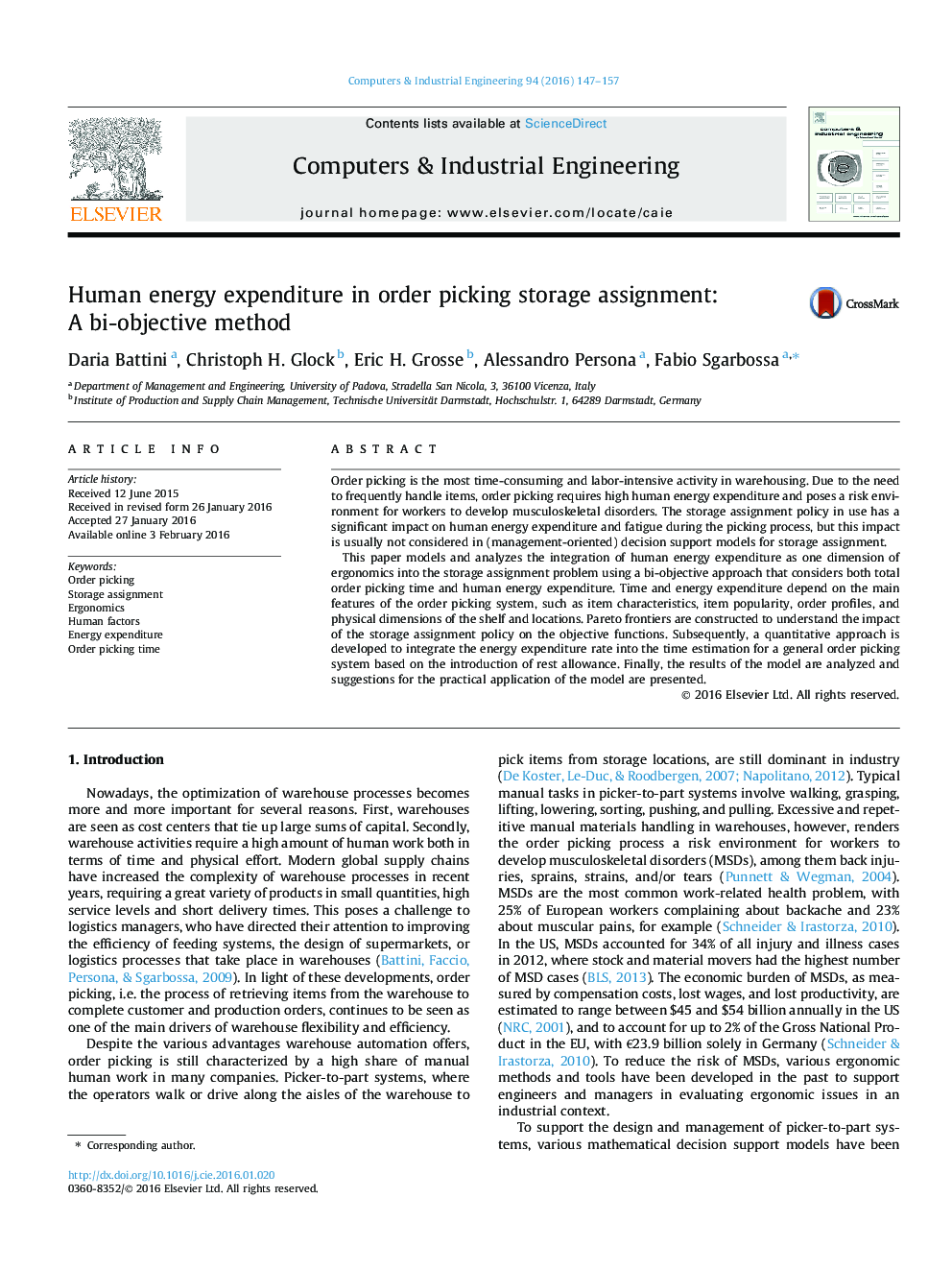| Article ID | Journal | Published Year | Pages | File Type |
|---|---|---|---|---|
| 1133275 | Computers & Industrial Engineering | 2016 | 11 Pages |
•Considers human energy expenditure in order picking.•Develops a bi-objective approach for a class-based storage assignment problem.•Estimates rest allowance based on energy consumption.•Compares traditional class-based storage and bi-objective storage assignment.
Order picking is the most time-consuming and labor-intensive activity in warehousing. Due to the need to frequently handle items, order picking requires high human energy expenditure and poses a risk environment for workers to develop musculoskeletal disorders. The storage assignment policy in use has a significant impact on human energy expenditure and fatigue during the picking process, but this impact is usually not considered in (management-oriented) decision support models for storage assignment.This paper models and analyzes the integration of human energy expenditure as one dimension of ergonomics into the storage assignment problem using a bi-objective approach that considers both total order picking time and human energy expenditure. Time and energy expenditure depend on the main features of the order picking system, such as item characteristics, item popularity, order profiles, and physical dimensions of the shelf and locations. Pareto frontiers are constructed to understand the impact of the storage assignment policy on the objective functions. Subsequently, a quantitative approach is developed to integrate the energy expenditure rate into the time estimation for a general order picking system based on the introduction of rest allowance. Finally, the results of the model are analyzed and suggestions for the practical application of the model are presented.
